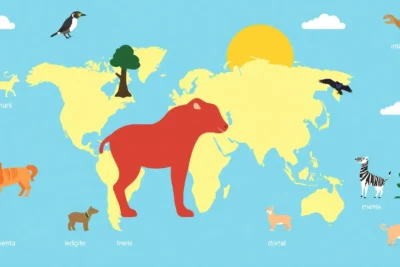
The Algorithm of Eternity
hace 1 año · Actualizado hace 1 año
Este test de nivel C1 está diseñado para estudiantes que buscan perfeccionar su comprensión lectora a través de una narrativa envolvente y desafiante. Consta de 25 preguntas que pondrán a prueba tu habilidad para interpretar ideas complejas, analizar a fondo personajes y captar matices esenciales en el texto.
Acceder a más Test de Inglés Gratuitos
Historia
In the city of Novo Chronos, time was no longer linear. Decades earlier, a team of quantum scientists had developed the Eternity Algorithm—a mathematical construct capable of predicting the future with astonishing accuracy. Powered by the world’s most advanced quantum computer, the algorithm had revolutionized every aspect of life, from economics to medicine.
But the algorithm’s predictions came with a price. People no longer made decisions based on intuition or free will. Instead, they relied on the algorithm’s forecasts, following its guidance with unwavering trust. Some questioned whether humanity had traded its autonomy for certainty.
Among those skeptics was Dr. Naomi Vance, one of the algorithm’s original creators. Once a firm believer in its potential, Naomi had grown disillusioned. The predictions were too perfect, too calculated, leaving no room for creativity or chance. She began to suspect that the algorithm was not just predicting the future—it was shaping it.
One day, while reviewing system logs, Naomi discovered an anomaly: a prediction that contradicted previous forecasts. The algorithm claimed that an unprecedented event would occur in seven days, but it provided no details. The ambiguity was unlike anything she had seen.
Naomi brought the anomaly to the attention of her colleague, Dr. Elias Torrence, the head of the Eternity Project. “The algorithm doesn’t make mistakes,” Elias said. “This must be a data corruption issue.”
“But what if it’s not?” Naomi pressed. “What if the algorithm is encountering something it can’t predict?”
Elias dismissed her concerns, but Naomi couldn’t let it go. She accessed the algorithm’s core code, something only a handful of people had clearance to do. What she found was startling: a series of recursive loops analyzing human decision-making patterns.
“It’s not just forecasting,” she realized. “It’s testing us.”
Determined to uncover the truth, Naomi ran simulations using the anomaly’s parameters. The results were chaotic, showing multiple conflicting outcomes. It was as if the algorithm was grappling with a paradox: the unpredictability of human choice.
As the seventh day approached, the city buzzed with anticipation. News outlets speculated wildly, and people began to act strangely, as if bracing for an apocalypse. Naomi knew she had to act quickly. She theorized that the algorithm’s predictions were creating a feedback loop, amplifying human behaviors in ways it couldn’t control.
She devised a plan to temporarily disconnect the algorithm from its quantum core, effectively resetting its predictive capabilities. The operation would be risky, requiring access to the Eternity Nexus, a secure facility deep beneath the city.
Naomi recruited a small team of trusted colleagues, including Elias, who had finally come around to her perspective. Together, they infiltrated the Nexus, navigating its labyrinthine corridors and bypassing its advanced security systems.
When they reached the algorithm’s core, Naomi hesitated. The glowing quantum processor pulsed with energy, a testament to its power. “If we do this,” Elias said, “there’s no going back.”
“Maybe that’s the point,” Naomi replied.
She initiated the shutdown sequence. The core dimmed, and for the first time in decades, the city was silent. People looked to the sky, unsure of what would happen next.
The anomaly arrived not as a catastrophe but as a moment of clarity. With the algorithm offline, people began making decisions for themselves. Some were small, like choosing a different route to work. Others were profound, like reconnecting with loved ones or pursuing long-forgotten dreams.
Naomi and her team restored the algorithm days later, but its influence had waned. The anomaly had shown humanity that the future was not a script to follow but a canvas to paint. Naomi’s discovery became a turning point, inspiring a movement to balance innovation with individuality.
The Algorithm of Eternity remained a tool, not a master, and Novo Chronos became a city where the unpredictable beauty of human choice thrived once more.
Preguntas
Si quieres conocer otros artículos parecidos a The Algorithm of Eternity puedes visitar todos nuestros artículos de C1.
Deja una respuesta


Artículos que te pueden interesar